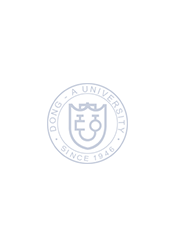| 000 | camIi | |
| 001 | 2210080852651 | |
| 003 | OCoLC | |
| 005 | 20190103135245 | |
| 006 | m d | |
| 007 | cr ||||||||||| | |
| 008 | 160302s2016 dcu ob 100 0 eng d | |
| 020 | ▼a9780309392037▼qelectronic bk. | |
| 020 | ▼a0309392039▼qelectronic bk. | |
| 020 | ▼z9780309392020 | |
| 020 | ▼z0309392020 | |
| 035 | ▼a(OCoLC)942666190 | |
| 040 | ▼aSCB▼beng▼erda▼epn▼cSCB▼dCUS▼dN▼dYDXCP▼d221008 | |
| 050 | ▼aQ180.55.S7 | |
| 072 | ▼aREF▼x018000▼2bisacsh | |
| 082 | ▼a001.422▼223 | |
| 245 | 00 | ▼aStatistical challenges in assessing and fostering the reproducibility of scientific results :▼bsummary of a workshop /▼cMichelle Schwalbe, rapporteur ; Committee on Applied and Theoretical Statistics, Board on Mathematical Sciences and Their Applications, Division on Engineering and Physical Sciences, the National Academies of Sciences, Engineering, Medicine. |
| 260 | ▼aWashington, DC :▼bthe National Academies Press,▼c[2016] | |
| 300 | ▼a1 online resource (xii, 119 pages) | |
| 336 | ▼atext▼btxt▼2rdacontent | |
| 337 | ▼acomputer▼bc▼2rdamedia | |
| 338 | ▼aonline resource▼bcr▼2rdacarrier | |
| 504 | ▼aIncludes bibliographical references. | |
| 520 | ▼a"Questions about the reproducibility of scientific research have been raised in numerous settings and have gained visibility through several high-profile journal and popular press articles. Quantitative issues contributing to reproducibility challenges have been considered (including improper data measurement and analysis, inadequate statistical expertise, and incomplete data, among others), but there is no clear consensus on how best to approach or to minimize these problems. A lack of reproducibility of scientific results has created some distrust in scientific findings among the general public, scientists, funding agencies, and industries. While studies fail for a variety of reasons, many factors contribute to the lack of perfect reproducibility, including insufficient training in experimental design, misaligned incentives for publication and the implications for university tenure, intentional manipulation, poor data management and analysis, and inadequate instances of statistical inference. The workshop summarized in this report was designed not to address the social and experimental challenges but instead to focus on the latter issues of improper data management and analysis, inadequate statistical expertise, incomplete data, and difficulties applying sound statistic inference to the available data. Many efforts have emerged over recent years to draw attention to and improve reproducibility of scientific work. This report uniquely focuses on the statistical perspective of three issues: the extent of reproducibility, the causes of reproducibility failures, and the potential remedies for these failures"--Publisher's description. | |
| 588 | ▼aOnline resource; title from PDF title page (EBSCO, viewed March 30, 2016) | |
| 650 | ▼aResearch▼xStatistical methods▼vCongresses. | |
| 650 | ▼aResearch▼xMethodology▼vCongresses. | |
| 650 | ▼aREFERENCE / Questions & Answers▼2bisacsh | |
| 655 | ▼aElectronic books. | |
| 700 | 1 | ▼aSchwalbe, Michelle,▼erapporteur |
| 710 | ▼aNational Academies of Sciences, Engineering, and Medicine (U.S.).▼bCommittee on Applied and Theoretical Statistics. | |
| 856 | ▼3EBSCOhost▼uhttp://search.ebscohost.com/login.aspx?direct=true&scope=site&db=nlebk&db=nlabk&AN=1204376 | |
| 938 | ▼aEBSCOhost▼bEBSC▼n1204376 | |
| 938 | ▼aYBP Library Services▼bYANK▼n12902984 | |
| 994 | ▼a92▼bN |
Statistical challenges in assessing and fostering the reproducibility of scientific results :summary of a workshop /Michelle Schwalbe, rapporteur ; Committee on Applied and Theoretical Statistics, Board on Mathematical Sciences and Their Applications, Division on Engineering and Physical Sciences, the National Academies of Sciences, Engineering, Medicine

종류
전자책
서명
Statistical challenges in assessing and fostering the reproducibility of scientific results :summary of a workshop /Michelle Schwalbe, rapporteur ; Committee on Applied and Theoretical Statistics, Board on Mathematical Sciences and Their Applications, Division on Engineering and Physical Sciences, the National Academies of Sciences, Engineering, Medicine
저자명
Schwalbe Michelle rapporteur
발행사항
Washington, DC : the National Academies Press [2016]
형태사항
1 online resource (xii, 119 pages)
주기사항
Includes bibliographical references. / "Questions about the reproducibility of scientific research have been raised in numerous settings and have gained visibility through several high-profile journal and popular press articles. Quantitative issues contributing to reproducibility challenges have been considered (including improper data measurement and analysis, inadequate statistical expertise, and incomplete data, among others), but there is no clear consensus on how best to approach or to minimize these problems. A lack of reproducibility of scientific results has created some distrust in scientific findings among the general public, scientists, funding agencies, and industries. While studies fail for a variety of reasons, many factors contribute to the lack of perfect reproducibility, including insufficient training in experimental design, misaligned incentives for publication and the implications for university tenure, intentional manipulation, poor data management and analysis, and inadequate instances of statistical inference. The workshop summarized in this report was designed not to address the social and experimental challenges but instead to focus on the latter issues of improper data management and analysis, inadequate statistical expertise, incomplete data, and difficulties applying sound statistic inference to the available data. Many efforts have emerged over recent years to draw attention to and improve reproducibility of scientific work. This report uniquely focuses on the statistical perspective of three issues: the extent of reproducibility, the causes of reproducibility failures, and the potential remedies for these failures"Publisher's description.
ISBN
관련 URL
소장정보
예도서예약
서서가부재도서 신고
보보존서고신청
캠캠퍼스대출
우우선정리신청
검검색지인쇄
| 등록번호 | 청구기호 | 별치기호 | 소장위치 | 대출상태 | 반납예정일 | 서비스 |
|---|---|---|---|---|---|---|
| 전자자료는 소장사항이 존재하지 않습니다 | ||||||